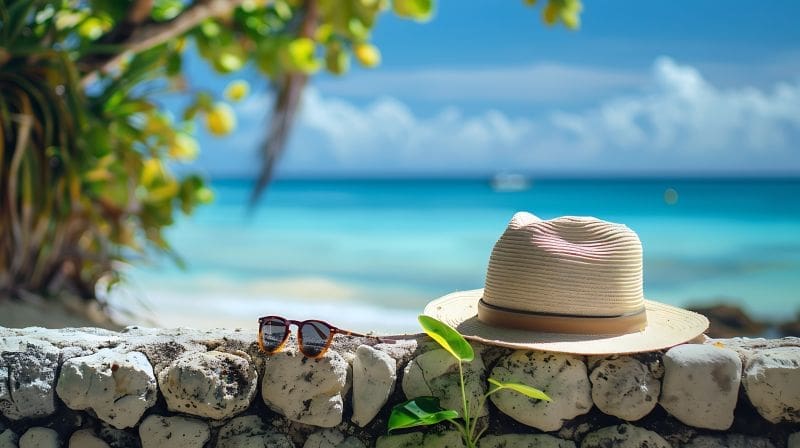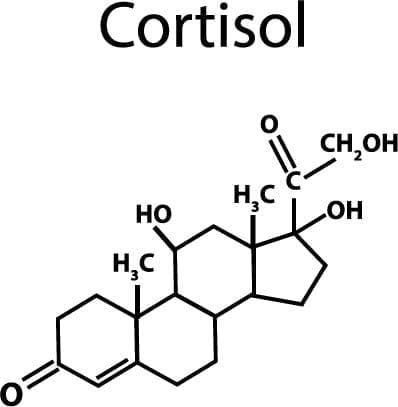
What Science Really Says about Vacations Part 1
As a clinical psychologist based in Silicon Valley, I can hardly begin to tell you how many high-performance employees and executives view a vacation as a luxury or an optional perk in our increasingly work-obsessed culture. I frankly don’t judge them, especially since there has been a tremendous push by many organizations for increased demand in productivity.
As a result, surveys of American workers now reveal that many employees leave their vacation days unused, concerned about falling behind or appearing less committed in a very competitive work environment.
However, as we will see, groundbreaking research involving over 30 studies and thousands of workers reveals a different truth: vacation isn’t just beneficial for your well-being—it’s essential!
The Vacation Effect Is Larger Than We Thought
A meta-analytic study appearing in the Journal of Applied Psychology has completely overturned previous assumptions about the impact of vacations on well-being. While earlier studies suggested that vacation benefits were small and quickly disappeared, a comprehensive analysis of 32 studies involving 256 effect sizes tells a dramatically different story.
The research reveals four distinct phases of the vacation experience:
During Vacation, Well-being increases substantially, a phenomenon researchers refer to as a “large effect.” The effect isn’t a minor mood boost; it’s a significant improvement in psychological and physical well-being that can be measured and sustained.
Returning to Work: As you might have experienced, well-being does decrease when you return to work, but it remains elevated above your pre-vacation baseline. The return to reality doesn’t erase the benefits of vacation.
Extended Benefits: Even weeks after returning from vacation, well-being levels remain higher than they were before the trip. The benefits don’t vanish overnight as previously believed.
Gradual Fade: While vacation benefits do slowly decline over time, they persist much longer than earlier research suggested, often lasting several weeks beyond the vacation itself.
The Alarming Reality of Vacation Avoidance
Hold on, I need to do one more thing…
Despite these clear benefits, Americans are notoriously bad at taking their earned time off. According to a recent Glassdoor research, the average U.S. employee uses only 51% of their eligible paid time off, essentially leaving half their vacation days unused. These findings represent a significant increase in unused vacation time since 2008, when workers typically left only three days unused.
Even more concerning, when people do take a vacation, 61% admit to checking work email during their time off. Nearly a quarter of vacationing employees reported being contacted by coworkers, and 20% received messages from their boss about work matters. The problem is that this constant connectivity undermines the very benefits that vacation is supposed to provide.
The Serious Health Consequences of Skipping Vacation
Here is an important takeaway. A vacation’s health benefits extend far beyond an improved mood—it can literally impact your physical health and longevity.
Your Heart Depends on It
Multiple long-term studies have clearly shown that regular vacations are of life-or-death importance. The renowned Framingham Heart Study, which followed women in a Massachusetts town for over 20 years, found that women who took infrequent vacations were more likely to have heart attacks than those who vacationed regularly. Similarly, the study reported that men who didn’t take a vacation for several years were 30% more likely to have heart attacks.
Another comprehensive study tracked 12,000 men at high risk for coronary heart disease over nine years and found that those who took annual vacations had fewer heart attacks and lower overall mortality rates than those who did not. Even more alarming, skipping vacation for just one year can increase your risk of heart disease. This isn’t about having a lifestyle that involves an extreme type of vacation; it’s about the stress reduction and recovery that vacation provides for your cardiovascular system.
Brain Function and Neural Development
Here is a shocking fact: avoiding downtime can alter both the structure and function of your brain. We know from stress research that stress leaves a structural imprint on the brain in the regions related to emotional processing, memory, and self-control. Applying these findings to a work context, chronic job stress, which is characterized by excessive deadlines, long hours, unclear boundaries, or toxic work environments, can lead to similar changes. Over time, this can lead to reduced cognitive flexibility, emotional resilience, and executive functioning. All areas that are critical traits for high-performing employees and leaders.
The good news is that these effects might be reversible, especially when stress is reduced and interventions are applied early.
Researchers Crosswell & Epel describe how “deep rest,” achieved through downtime, contemplative practices, or breaks, helps shift the nervous system from a state of stress (sympathetic dominance) to a restorative state (parasympathetic dominance). In this state, energy and cellular resources are redirected to repair and build neural resilience.
Research on play and rest reveals that without adequate downtime, the neural connections responsible for producing feelings of calm and peacefulness actually become weaker. Thus, without rest and downtime, it is increasingly difficult to shift into less-stressed modes over time.
Neuroscience has similarly shown that our bodies require genuine downtime to activate restoration processes. It’s only when we’re safe from external stresses that our bodies can relax enough for this critical restoration to occur. Without it, we’re training our brains to remain in a perpetual state of stress.

The Stress Hormone Trap and Burnout Risk
Perhaps most concerning is research showing that chronic stress without adequate recovery can be literally life-threatening. Studies on young rats deprived of play time found that their brains didn’t develop properly, and their cortisol (stress hormone) levels remained so persistently high that the rats died. While humans are more resilient, the principle remains: chronic stress without recovery periods has serious physiological consequences.
Workers who don’t take vacations face significantly higher risks of burnout, characterized by emotional exhaustion, cynicism, and feeling unable to handle professional demands.
Sadly, this burnout doesn’t stay confined to work; it creates marriage and family problems and contributes to depression, poor health, and higher rates of suicide.
Building Resilience Requires Rest
Vacation doesn’t just provide temporary relief; it builds your capacity to handle future stress. Self-control and grit, critical traits that predict success in work and life, actually depend on your ability to truly relax and recover. Without regular restoration periods, you’re not building resilience, you’re depleting it.
As we have reviewed in this article, the research is clear: vacations are not luxuries, they’re a fundamental requirement for your health and success. Vacations offer us substantial, lasting benefits that protect our hearts, strengthen our brains’ resilience, and enhance our capacity to handle future stress. Yet most of us are leaving our vacation days unused and staying connected to work even when we do take time off. This isn’t just unfortunate; it’s dangerous to our health. The good news is that you now understand why vacation matters so much.
In Part 2, I’ll show you exactly how to vacation in the most effective way possible, with specific strategies to maximize recovery, truly disconnect, and return with renewed energy. The science shows us the path forward—now it’s time to take it.
FAQ Section
Q: Do vacations actually improve your health, or is that just a myth?
A: The science is precise: vacations provide substantial, measurable health benefits. The Framingham Heart Study showed that women who took infrequent vacations were more likely to have heart attacks, and men who skipped vacations were 30% more likely to have heart attacks.
Q: How many vacation days do Americans actually use?
A: Only 51% of their eligible paid time off. The average American worker leaves half their vacation days unused, and 61% check work email during time off, which undermines the health benefits.
Q: Can skipping vacation really affect my brain function?
A: Yes. Chronic stress without recovery alters brain structure and function, particularly in areas related to emotional processing, memory, and self-control. Neural connections for calm and peacefulness actually become weaker without regular downtime.
Q: What happens to my stress hormones when I don’t take breaks?
A: Cortisol levels remain persistently high without adequate recovery periods. Chronic stress without recovery leads to serious consequences, including increased burnout, depression, and health problems.
Q: How long do vacation benefits actually last?
A: Several weeks beyond the vacation itself. Well-being remains elevated above your pre-vacation baseline even after returning to work, though benefits gradually fade over time.
Q: Is it really that bad to check work email during vacation?
A: Yes, it significantly undermines health benefits. When you stay connected to work, your nervous system can’t shift into restorative mode, preventing your body from activating repair processes.
Ready to Prioritize Your Health and Well-Being?
If you’re struggling to take time off or feel guilty about disconnecting from work, you’re putting your health at serious risk. The research shows that vacation isn’t a luxury—it’s essential for your cardiovascular health, brain function, and stress resilience.
Dr. Ginny Estupinian, PhD, helps high-performing professionals in Silicon Valley overcome the psychological barriers that keep them tethered to work. Learn evidence-based strategies to prioritize your well-being without compromising your career success.
📞 Call today: 844-802-6512
🌐 Contact Dr. Estupinian’s office to start protecting your health through proper rest and recovery.